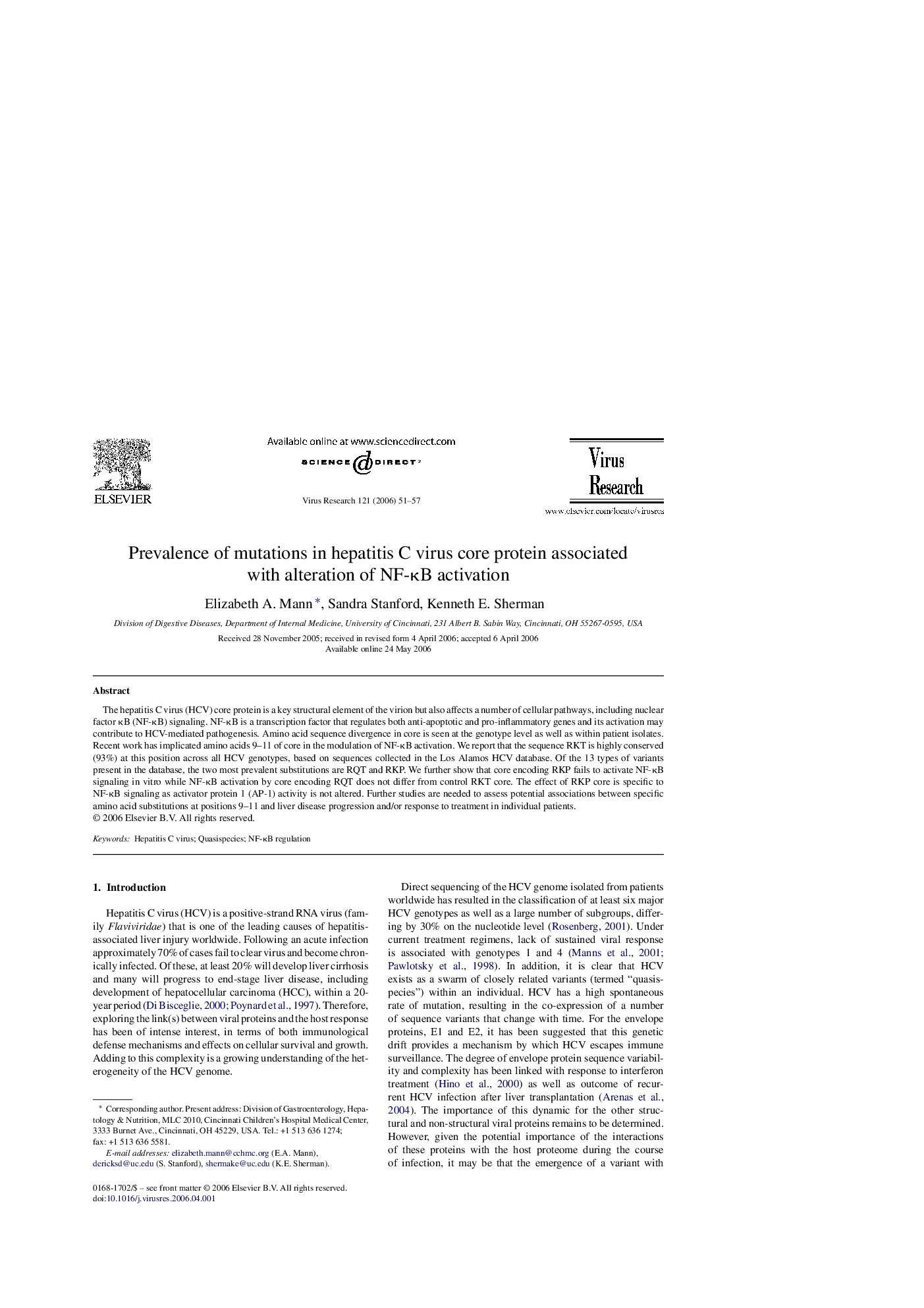| Article ID | Journal | Published Year | Pages | File Type |
|---|---|---|---|---|
| 3431126 | Virus Research | 2006 | 7 Pages |
The hepatitis C virus (HCV) core protein is a key structural element of the virion but also affects a number of cellular pathways, including nuclear factor κB (NF-κB) signaling. NF-κB is a transcription factor that regulates both anti-apoptotic and pro-inflammatory genes and its activation may contribute to HCV-mediated pathogenesis. Amino acid sequence divergence in core is seen at the genotype level as well as within patient isolates. Recent work has implicated amino acids 9–11 of core in the modulation of NF-κB activation. We report that the sequence RKT is highly conserved (93%) at this position across all HCV genotypes, based on sequences collected in the Los Alamos HCV database. Of the 13 types of variants present in the database, the two most prevalent substitutions are RQT and RKP. We further show that core encoding RKP fails to activate NF-κB signaling in vitro while NF-κB activation by core encoding RQT does not differ from control RKT core. The effect of RKP core is specific to NF-κB signaling as activator protein 1 (AP-1) activity is not altered. Further studies are needed to assess potential associations between specific amino acid substitutions at positions 9–11 and liver disease progression and/or response to treatment in individual patients.
